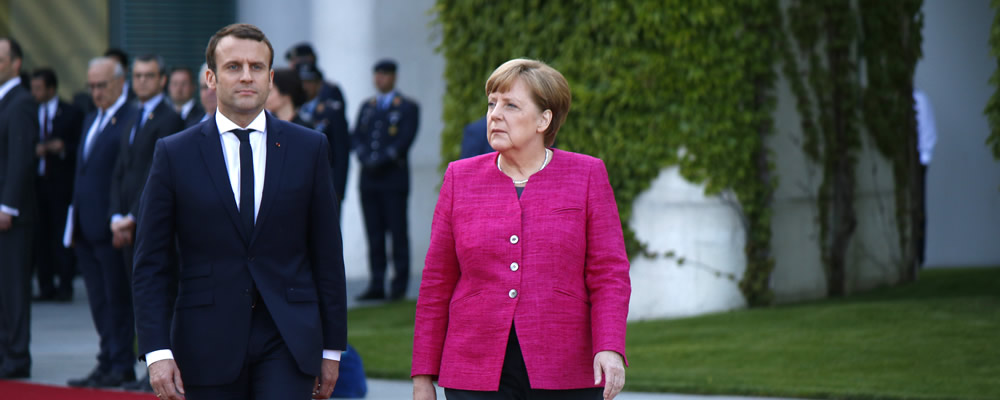In a continuation of earlier movement, the Euro (EUR) has advanced by 0.4% against the Pound (GBP) this afternoon.
The EUR/GBP exchange rate has been supported by a lack of positive UK news today; the earlier construction PMI hasn’t provided lasting support.
Despite the advantageous situation for Euro traders, single currency gains have been limited by background concerns about Italy’s government.
There was initial relief when a coalition government was confirmed last week, but since then fears about an economic slowdown have emerged.
The new leadership still seems on track to contest Eurozone economic policies, so the situation might worsen in the weeks ahead.
(Last updated 4th June, 2018)
Signs of Compromise between German and French Leaders Pushes GBP/EUR Exchange Rate Higher
The Euro (EUR) has made a moderate advance against the Pound (GBP) today, in addition to rising against other regular currency peers.
This appreciation follows the news that German Chancellor Angela Merkel has offered support to French President Emmanuel Macron’s Eurozone reform plans.
Germany has been reluctant to fully commit to Mr Macron’s sweeping measures, but Mrs Merkel’s backing of a Eurozone-wide budget is still progress.
The news comes when the Eurozone and wider EU project are being challenged, especially with the new Italian government being formed of two Eurosceptic parties.
Pound Sterling to Euro (GBP/EUR) Exchange Rate Declines on Gloomy Construction Sector Data
The Pound (GBP) has struggled today, making noticeable losses against the Euro (EUR) and most of its other currency peers.
This comes after a trio of UK economic announcements lowered confidence among GBP traders.
The first was the news that Brexit concerns are limiting business investment in the UK; levels of spending have fallen to a one-year low.
Secondly, there are reports that over the past ten years almost 600,000 jobs have been lost from the UK’s manufacturing sector.
UK manufacturing isn’t the biggest contributor to national economic growth, but still employs millions of workers so any downturn is troubling.
Most recently, the Pound has been harmed by May’s construction sector PMI which has remained static at 52.5 points.
A 50-plus reading means sector growth, although as Markit’s Sam Teague points out, there isn’t much to celebrate:
‘The May PMI data signalled an unchanged pace of activity growth across the UK’s construction sector since April’s somewhat underwhelming rebound, yet nevertheless indicating a recovery in the second quarter after the contraction seen at the start of the year.
‘Companies frequently noted that Brexit uncertainty and fragile business confidence led clients to delay building decisions in May.
‘With new order books deteriorating and cost pressures picking back up, it’s not surprising to see construction firms taking a dimmer view of prospects and pulling-back on hiring, all of which makes for a shaky-looking outlook.’
Euro to Pound Exchange Rate Forecast: Are EUR/GBP Losses ahead on Eurozone PMI Decline?
PMI data will continue to affect the Euro to Pound (EUR/GBP) exchange rate on Tuesday, with May’s Eurozone readings coming out in the morning.
Both the overall and services sector measures are predicted to drop, from 55.1 points to 54.1 and from 54.7 points to 53.9.
Such printings would still mean growth across the Eurozone, but at a slower pace.
Falling PMIs could cause a decline in the EUR/GBP exchange rate, but UK services sector data out shortly afterwards might push the Euro back up.
The UK services PMI for May is currently forecast to increase from 52.8 points to 53, which may raise the value of Pound Sterling.
That said, previous forecasts have been for the services reading to show a slowdown in May, which could instead extend GBP/EUR exchange rate losses.
The services sector is the single largest contributor to UK economic growth, so a surprise drop could greatly improve Euro to Pound trading.



